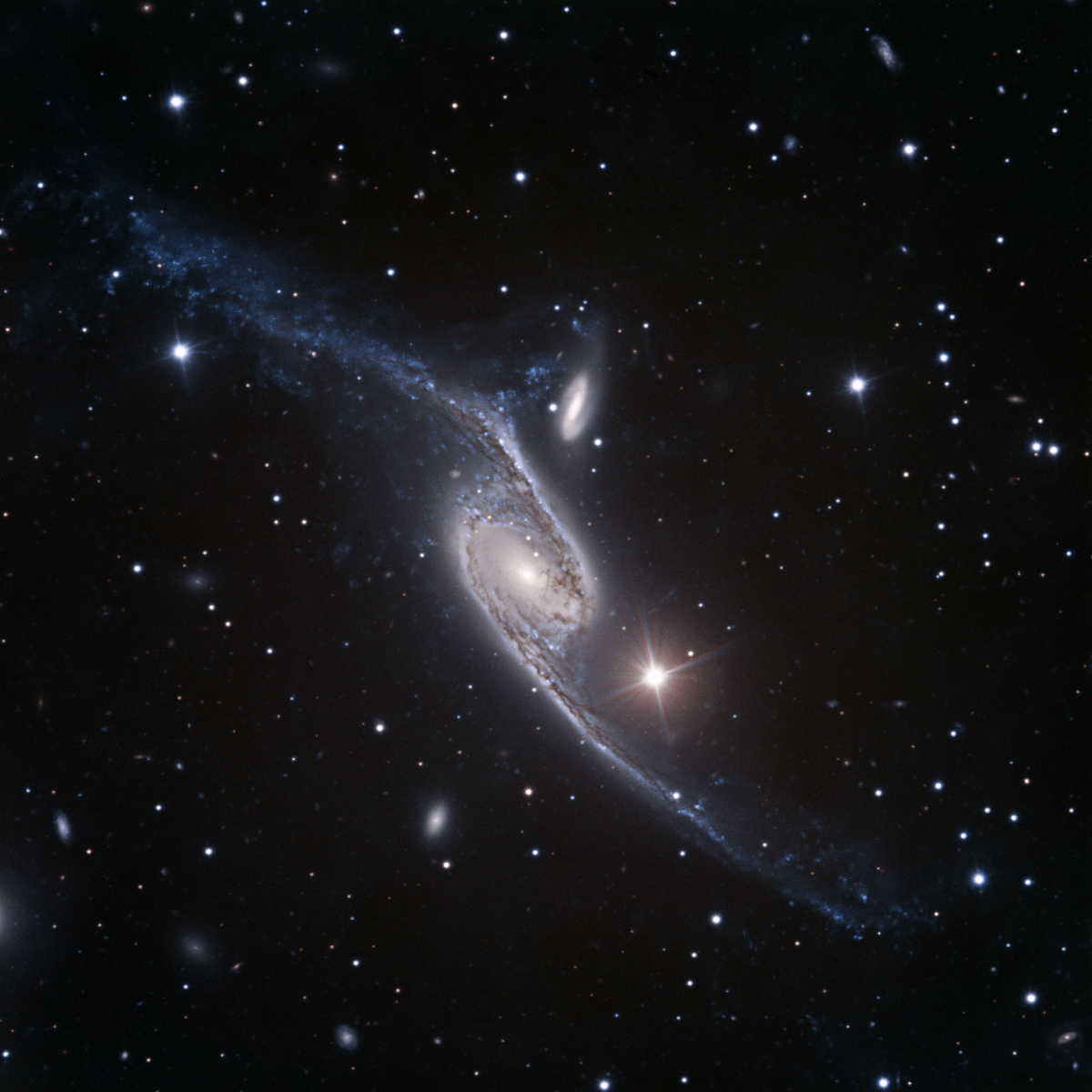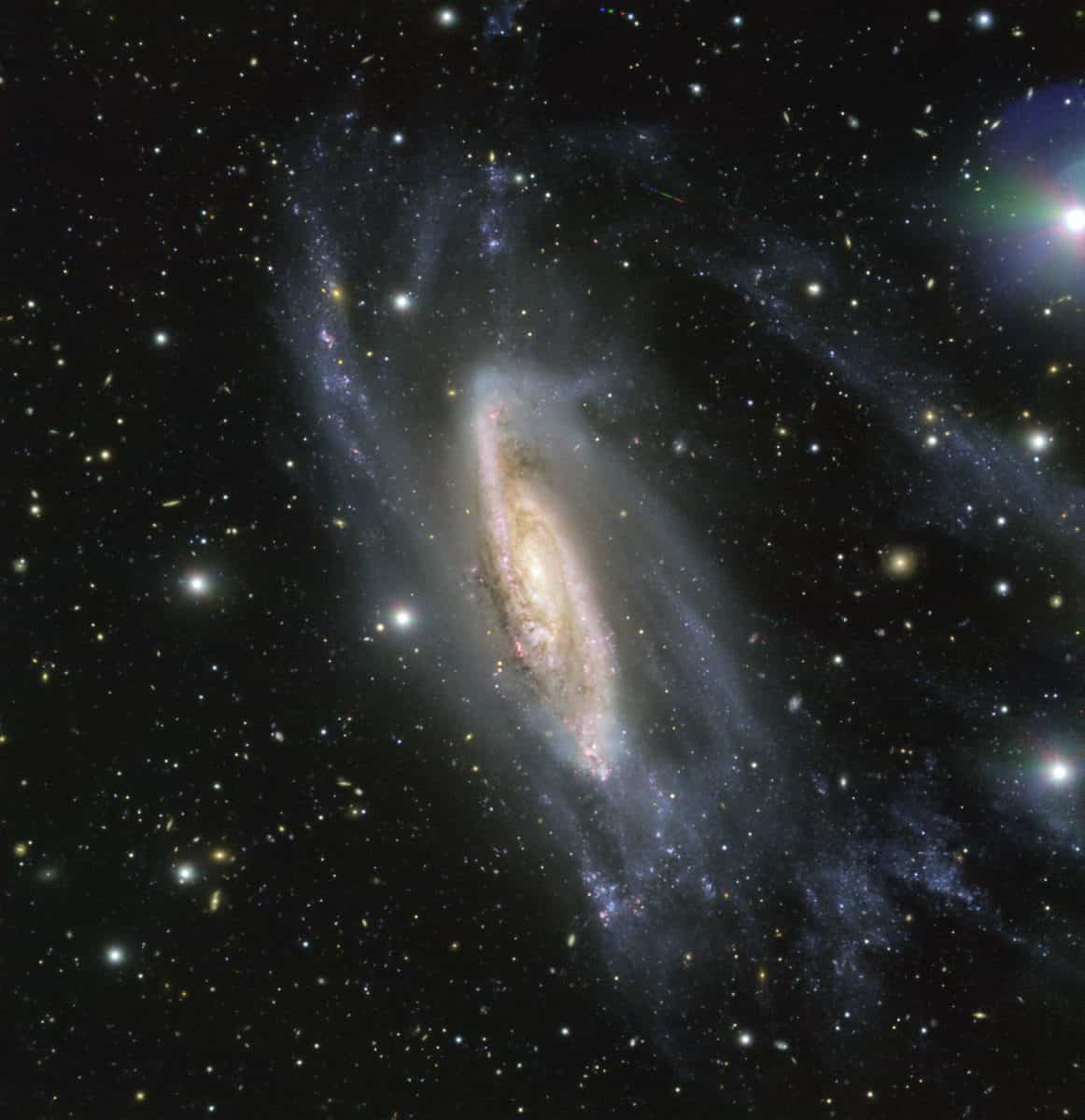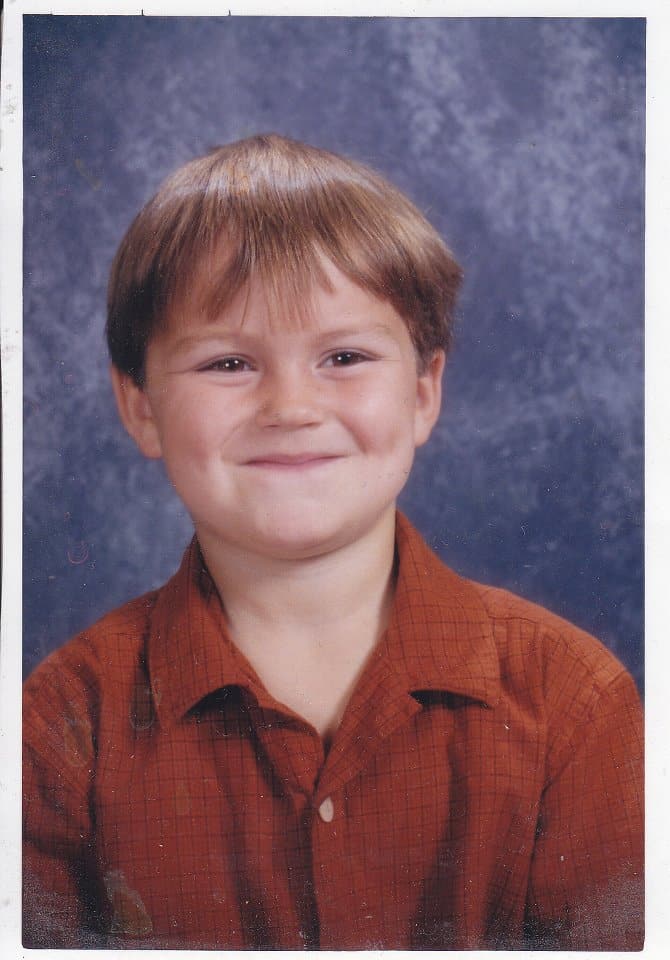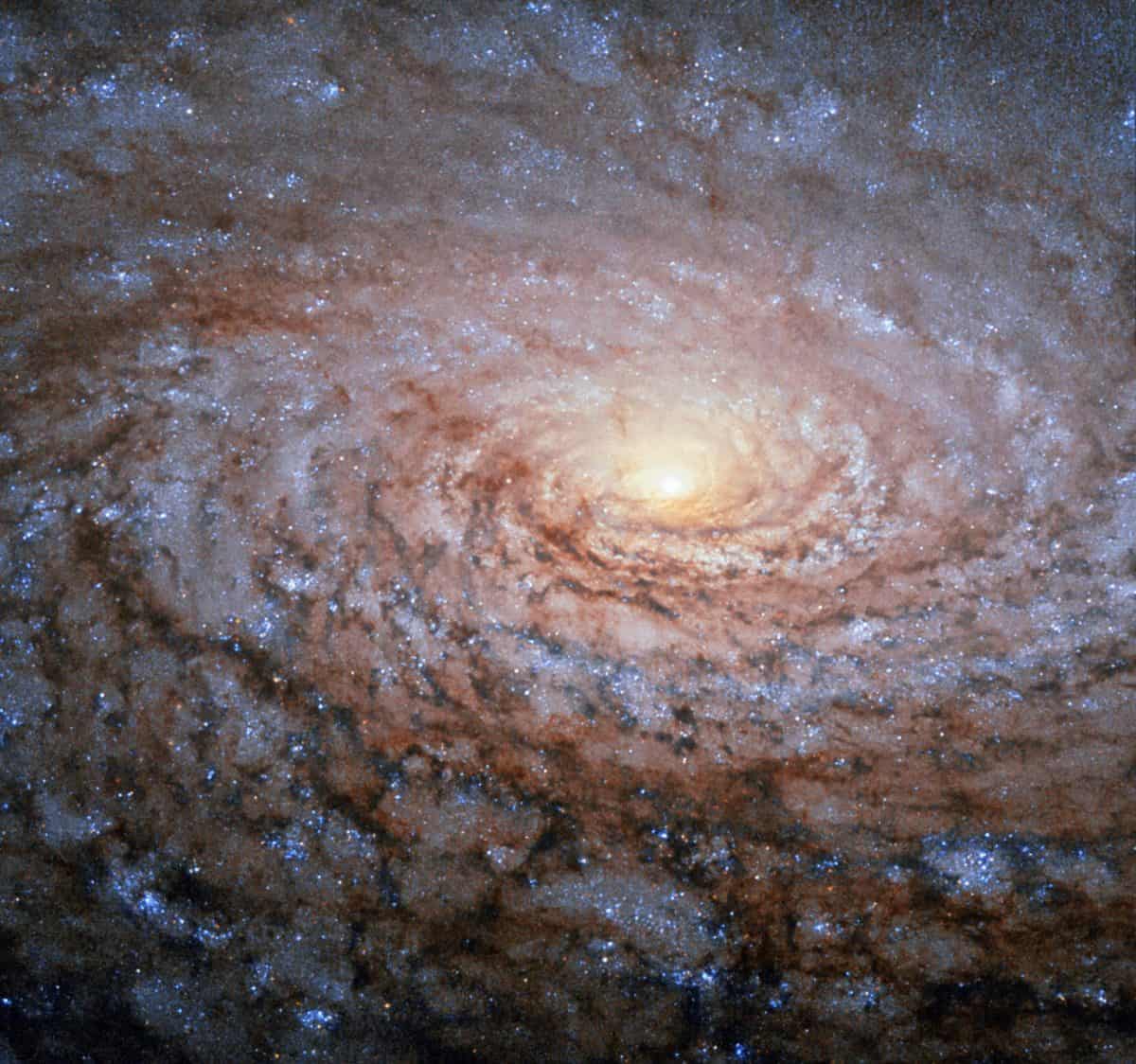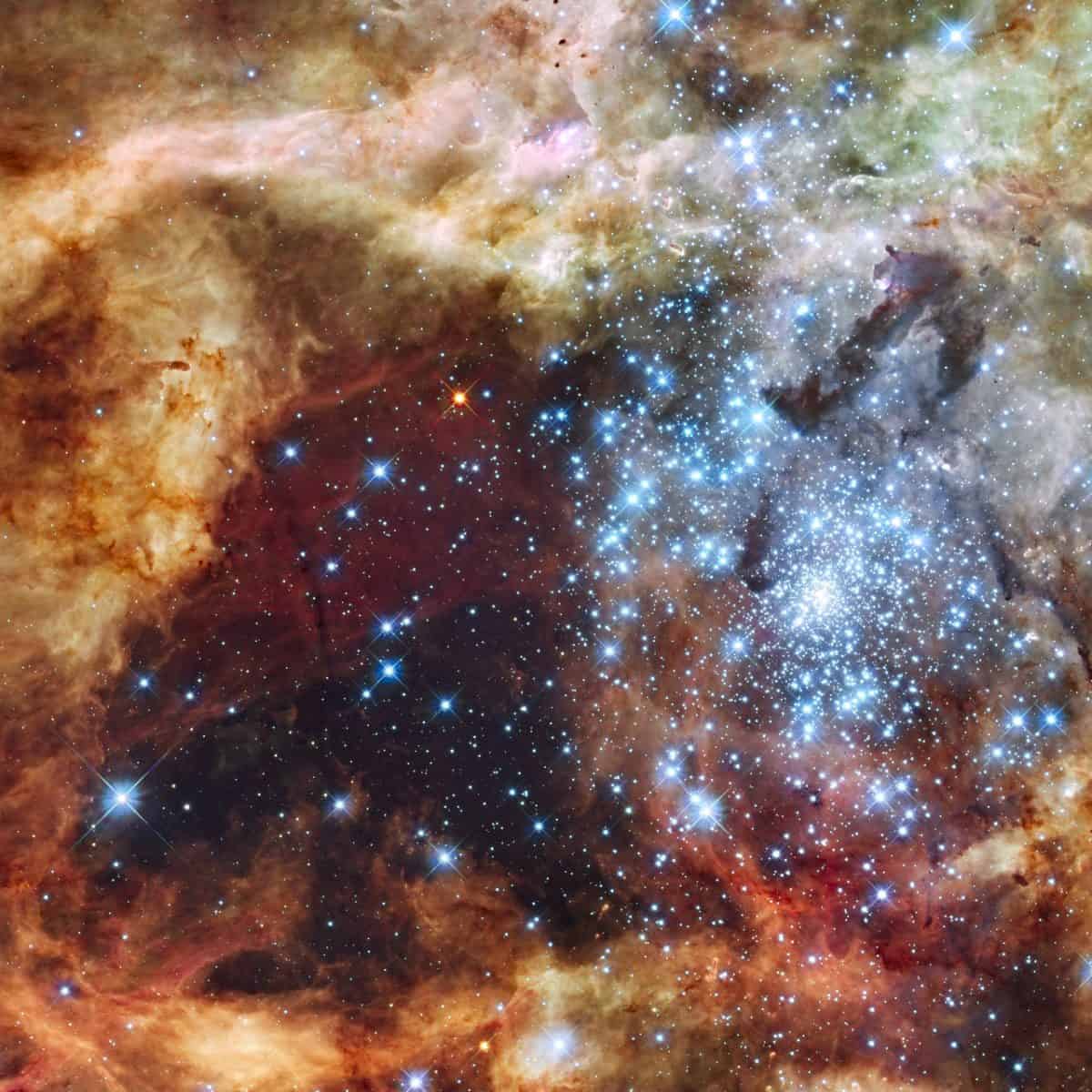Blog
NGC 6872, also known as the Condor Galaxy, is a large barred spiral galaxy of type SB(s)b pec in the constellation Pavo. It is 212 million light-years (65 Mpc) from Earth and is approximately five billion years old. NGC 6872 is interacting with the lenticular galaxy IC 4970, which is less than one twelfth as large. The galaxy has two elongated arms; from tip to tip, NGC 6872 measures 522,000 light-years (160,000 pc), making it one of the largest-known spiral galaxies.[2][note 1] It was discovered on 27 June 1835 by English astronomer John Herschel.
When observed in the ultraviolet and mid-infrared, the central region and bar of NGC 6872 show old stars and low rates of star formation, with rates increasing along the spiral arms as distance from the core increases. The most active region of star formation, located in the northeast arm, shows a stellar flux around 1,000 times higher than in the central region, though this may be affected by the density of stellar dust in the core. The extended portions of both arms exhibit young star cluster formations with ages ranging from one to one hundred million years. Star formation rates in the northeast extended arm are twice that of the southwest extended arm, and five times the formation rate in the sections of the arms closer to the central region.
more...Samuel Carthorne Rivers (September 25, 1923 – December 26, 2011) was an American jazz musician and composer. He performed on soprano and tenor saxophones, bass clarinet, flute, harmonica and piano.
Active in jazz since the early 1950s, he earned wider attention during the mid-1960s spread of free jazz. With a thorough command of music theory, orchestration and composition, Rivers was an influential and prominent artist in jazz music.
Rivers was born in El Reno, Oklahoma. His father was a gospel musician who had sung with the Fisk Jubilee Singers and the Silverstone Quartet, exposing Rivers to music from an early age. His grandfather was Marshall W. Taylor, a religious leader from Kentucky. Rivers was stationed in California in the 1940s during a stint in the Navy. Here he performed semi-regularly with blues singer Jimmy Witherspoon. Rivers moved to Boston, Massachusetts in 1947, where he studied at the Boston Conservatory with Alan Hovhaness.
He performed with Quincy Jones, Herb Pomeroy, Tadd Dameron and others.
https://www.youtube.com/watch?v=quCrXHvBcg0
more...Rossiere “Shadow” Wilson (September 25, 1919 – July 11, 1959 NY, NY) was an American jazz drummer.
Much of Wilson’s early work was with swing jazz orchestras. He played with Frankie Fairfax’s Campus Club Orchestra in 1936, with Lucky Millinderin 1939, and following this, with Benny Carter, Tiny Bradshaw, Lionel Hampton, Earl Hines, Count Basie, and Woody Herman. Later in his career he played with Illinois Jacquet, Erroll Garner, Thelonious Monk, Ella Fitzgerald, Joe Newman, Lee Konitz, Sonny Stitt, Phil Woods, Gene Quill, and Tadd Dameron. The drummer was known to sit in at the famed Minton’s Playhouse. His nickname came from “his beautiful light touch with brushes”, in the words of bassist Peter Ind. Wilson died of meningitis in July 1959. He never recorded as a leader.
more...Cuba
https://www.youtube.com/watch?v=OBy3QD9f8yU&index=25&list=PLEB3LPVcGcWbHKyo-uy8CkVvebHEsluVK
more...https://www.youtube.com/watch?v=Fn1OuTPGoNw&list=PLEB3LPVcGcWZ0hsQ5_jgSMhawAnDzy1io&index=3&t=0s
more...NGC 3981 is a spiral galaxy located 62 million light-years away in the constellation of Crater. It was discovered on February 7, 1785 by William Herschel.
NGC 3981 is a member of the NGC 4038 Group which is part of the Virgo Supercluster.
more...Theodore “Fats” Navarro (September 24, 1923 – July 7, 1950 was an American jazz trumpet player. He was a pioneer of the bebop style of jazz improvisation in the 1940s. He had a strong stylistic influence on many other players, including Clifford Brown.
Navarro was born in Key West, Florida, of Cuban, African, and Chinese descent. He began playing piano at age six, but did not become serious about music until he began playing trumpet at the age of thirteen. He was a childhood friend of drummer Al Dreares. By the time he graduated from Douglass High School, he wanted to be away from Key West and joined a dance band headed for the Midwest.
Tiring of the road life after touring with many bands and gaining valuable experience, including influencing a young J. J. Johnson when they were together in Snookum Russell‘s territory band, Navarro settled in New York City in 1946, where his career took off. He met and played with, among others, Charlie Parker, one of the greatest musical innovators of modern jazz improvisation.[citation needed] But Navarro was in a position to demand a high salary and did not join one of Parker’s regular groups. He also developed a heroin addiction, tuberculosis, and a weight problem (he was nicknamed “Fat Girl”). These afflictions led to a slow decline in his health and death at the age of twenty-six. Navarro was hospitalized on July 1 and died in the evening of July 6, 1950. His last performance was with Charlie Parker on July 1 at Birdland.
Navarro played in the Andy Kirk, Billy Eckstine, Benny Goodman, and Lionel Hampton big bands, and participated in small group recording sessions with Kenny Clarke, Tadd Dameron, Eddie “Lockjaw” Davis, Coleman Hawkins, Illinois Jacquet, Howard McGhee, and Bud Powell.
more...Lemon Henry “Blind Lemon” Jefferson (September 24, 1893 – December 19, 1929) was an American blues and gospel singer, songwriter, and musician. He was one of the most popular blues singers of the 1920s and has been called the “Father of the Texas Blues“.
Jefferson’s performances were distinctive because of his high-pitched voice and the originality of his guitar playing. His recordings sold well, but he was not a strong influence on younger blues singers of his generation, who could not imitate him as easily as they could other commercially successful artists. Later blues and rock and roll musicians, however, did attempt to imitate both his songs and his musical style.
Jefferson was born blind (or possibly partially blind), near Coutchman, Texas. He was the youngest of seven (or possibly eight) children born to Alex and Clarissa Jefferson, who were African-American sharecroppers. Disputes regarding the date of his birth derive from contradictory census records and draft registration records. By 1900, the family was farming southeast of Streetman, Texas. Jefferson’s birth date was recorded as September 1893 in the 1900 census. The 1910 census, taken in May, before his birthday, confirms his year of birth as 1893 and indicated that the family was farming northwest of Wortham, near his birthplace.
more...Born in Bulgaria and now living in London, her talent has brought rapturous comments (“exquisite” – San Diego Union-Tribune) for the purity and range of her music. Inspired by the traditional music of her homeland, in 2005 Eugenia formed the Perunika Trio, an a cappella group that’s not only delved deep into Bulgarian music, but also old songs from Macedonia, Russia and other Slavic countries.
more...Messier 63 (M63) is a spiral galaxy located in the constellation Canes Venatici, the Hunting Dogs.
It has an apparent visual magnitude of 8.5 and is approximately 29.5 million light-years distant from the Sun.
Also cataloged as NGC 5055, Messier 63 is around 100,000 light-years across, about the size of our Milky Way Galaxy.
Discovered by French astronomer Pierre Mechain in June 1779, the galaxy later made it as the 63rd entry into Charles Messier’s famous catalogue, published in 1781.
It is a member of the M51 Group – a group of galaxies, named after its brightest member, Messier 51 (Whirlpool Galaxy).
The galaxy has faint, extended features that could be the result of gravitational interactions with nearby galaxies.
It shines across the electromagnetic spectrum and is thought to have undergone bursts of intense star formation.
On May 25, 1971, a Type I supernova (SN 1971I) was detected in Messier 63, peaking at magnitude 11.8.
Distance 27 Mly
more...
John William Coltrane (September 23, 1926 – July 17, 1967 Hamlet, NC) was an American jazz saxophonist and composer, also known as “Trane“. Working in the bebop and hard bop idioms early in his career, Coltrane helped pioneer the use of modes and was later at the forefront of free jazz. He led at least fifty recording sessions, and appeared on many albums by other musicians, including trumpeter Miles Davis and pianist Thelonious Monk.
Over the course of his career, Coltrane’s music took on an increasingly spiritual dimension. Coltrane remains one of the most influential saxophonists in music history. He received many posthumous awards and recognitions, including canonization by the African Orthodox Church and a special Pulitzer Prize in 2007. His second wife was pianist Alice Coltrane and their son, Ravi Coltrane, is also a saxophonist.
In the summer of 1955, Coltrane was freelancing in Philadelphia while studying with guitarist Dennis Sandole when he received a call from Davis. The trumpeter, whose success during the late forties had been followed by several years of decline in activity and reputation, due in part to his struggles with heroin, was again active and about to form a quintet. Coltrane was with this edition of the Davis band (known as the “First Great Quintet”—along with Red Garland on piano, Paul Chambers on bass, and Philly Joe Jones on drums) from October 1955 to April 1957 (with a few absences). During this period Davis released several influential recordings that revealed the first signs of Coltrane’s growing ability. This quintet, represented by two marathon recording sessions for Prestige in 1956, resulted in the albums Cookin,’ Relaxin’, Workin’, and Steamin’. The “First Great Quintet” disbanded due in part to Coltrane’s heroin addiction.
At the end of this period Coltrane recorded his first album as leader for Atlantic Records, Giant Steps (1959), which contained only his compositions. The album’s title track is generally considered to have one of the most difficult chord progressions of any widely played jazz composition. Giant Steps utilizes Coltrane changes. His development of these altered chord progression cycles led to further experimentation with improvised melody and harmony that he continued throughout his career.
Coltrane formed his first quartet for live performances in 1960 for an appearance at the Jazz Gallery in New York City. After moving through different personnel including Steve Kuhn, Pete La Roca, and Billy Higgins, the lineup stabilized in the fall with pianist McCoy Tyner, bassist Steve Davis, and drummer Elvin Jones. Tyner, from Philadelphia, had been a friend of Coltrane’s for some years and the two men had an understanding that the pianist would join Coltrane when Tyner felt ready for the exposure of regularly working with him. Also recorded in the same sessions[clarification needed] were the later released albums Coltrane’s Sound (1964) and Coltrane Plays the Blues (1962).
with Jimmy Garrison, Elvin Jones and McCoy Tyner
more...Ray Charles Robinson (September 23, 1930 – June 10, 2004 Albany, GA), known professionally as Ray Charles, was an American singer-songwriter, musician, and composer. Among friends and fellow musicians he preferred being called “Brother Ray”. He was often referred to as “The Genius”.Charles was blind from the age of seven.
He pioneered the soul music genre during the 1950s by combining blues, rhythm and blues, and gospel styles into the music he recorded for Atlantic Records. He also contributed to the integration of country music, rhythm and blues, and pop music during the 1960s with his crossover success on ABC Records, most notably with his two Modern Sounds albums. While he was with ABC, Charles became one of the first black musicians to be granted artistic control by a mainstream record company.
Charles cited Nat King Cole as a primary influence, but his music was also influenced by country, jazz, blues, and rhythm and blues artists of the day, including Louis Jordan and Charles Brown. He became friends with Quincy Jones. Their friendship lasted until the end of Charles’s life. Frank Sinatra called Ray Charles “the only true genius in show business”, although Charles downplayed this notion.
In 2002, Rolling Stone ranked Charles number ten on its list of the “100 Greatest Artists of All Time“, and number two on their November 2008 list of the “100 Greatest Singers of All Time”. Billy Joel observed, “This may sound like sacrilege, but I think Ray Charles was more important than Elvis Presley”
more...Morrocan Gnawa master
more...The Tarantula Nebula (also known as 30 Doradus) is an H II region in the Large Magellanic Cloud (LMC).
The Tarantula Nebula was observed by Nicolas-Louis de Lacaille during an expedition to the Cape of Good Hope between 1751 and 1753. He catalogued it as the second of the “Nebulae of the First Class”, “Nebulosities not accompanied by any star visible in the telescope of two feet”. It was described as a diffuse nebula 20′ across.
Johann Bode included the Tarantula in his 1801 Uranographia star atlas and listed it in the accompanying Allgemeine Beschreibung und Nachweisung der Gestirne catalogue as number 30 in the constellation “Xiphias or Dorado”. Instead of being given a stellar magnitude, it was noted to be nebulous.
The name Tarantula Nebula arose the mid 20th century from the appearance in deep photographic exposures.
30 Doradus has often been treated as the designation of a star, or of the central star cluster NGC 2070, but is now generally treated as referring to the whole nebula area of the Tarantula Nebula.
The Tarantula Nebula has an apparent magnitude of 8. Considering its distance of about 49 kpc (160,000 light-years), this is an extremely luminous non-stellar object. Its luminosity is so great that if it were as close to Earth as the Orion Nebula, the Tarantula Nebula would cast visible shadows. In fact it is the most active starburst region known in the Local Group of galaxies. It is also one of the largest such regions in the Local Group with an estimated diameter of 200 pc. The nebula resides on the leading edge of the LMC where ram pressure stripping, and the compression of the interstellar medium likely resulting from this, is at a maximum.
more...Bobby Radcliff, born Robert Radcliff Ewan, is an American blues guitarist, singer, songwriter and painter. Radcliff, raised in Bethesda, Maryland, began playing guitar at the early age of 12, attending a variety of concerts that would come through the area (Blues, Bluegrass, Rockabilly, Country, Rock, Jazz, etc.). Radcliff played in a number of bands beginning at age 13, as both a guitarist and vocalist.
He is known for his position in the band “The Yarbs” (bandleader Chris Pestalozzi) which played cover songs, standards, and originals, crossing many genres, with an emphasis on original compositions and Blues. In 1968, Radcliff also joined “The Northside Blues Band”, alongside Brett Littlehales (harmonica), Guy Dorsey (keyboard), William Bowman (bass), and Van Holmead (drums).
more...Fletcher Smith (born September 22, 1913 in Lincoln , Nebraska , August 15, 1993 in Los Angeles ) was an American rhythm & blues – and jazz pianist .
Fletcher Smith played for Cootie Williams in 1943 and in the following years with Slim Gaillard , King Perry , Varetta Dillard , Jimmy Rushing , Big Maybelle , Linda Hopkins , Sister Rosetta Tharpe , Earl Bostic , Stick McGhee , Mickey Baker , Percy Mayfield , King Perry and Geechie Smith . Under his own name ( Fletcher Smith’s Squares, Fletcher Smiths band ) he played in the 1950s several singles such as Mean Poor Gal , Ting Ting Boom Scat or Shout, Shout, Shout . In the field of jazz he was involved between 1943 and 1959 in 36 recording sessions.
more...Muslim Niger
more...More Posts
- Music for Surviving the Pandemic
- The Cosmos with Arp 299
- Joey Defrancesco Day
- Omar Sosa Day
- Bunny Wailer Day
- Kishori Amonkar Day
- Roscoe Gordon Day
- Flamenco Fridays with José de la Tomasa y Manolo Franco
- Daily Roots with African Child & the Prophet Unification
- Music for Surviving the Pandemic
- The Cosmos with 2XMM J143450.5+033843
- Steve Gadd Day
- Reuben Wilson Day
- Carl Perkins Day
- Mance Lipscomb Day
- World Music with Al Bilali Soudan
- Daily Roots with Sly & Robbie
- Music for Surviving the Pandemic
- The Cosmos with IC 342
- Julian Lennon Day
